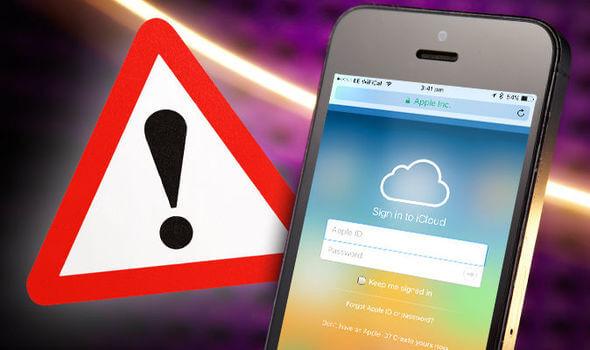Tech
Methods That Scammers Use to Steal Data from Your iPhone

Having an iPhone in your hand is like having a best friend, but it can also be a problem. Scammers may take advantage of seemingly harmless acts performed daily, such as checking a bank balance or charging a phone at a public USB port, to get personal information and use it for scamming.
To ensure the security of your data, you must first understand the risks you are up against. Your iPhone can be vulnerable in three major ways: through the hardware, software, and phone number. Each has a level of danger, and there are ways you may do to reduce that risk.
Table of Contents
How to stay safe from scammers?
Be cautious while using public Wi-Fi
Can scammers remotely access phones? When you use an unprotected wireless network, scammers may access your personal information and steal your money through different scammer tools. Be cautious while using public Wi-Fi networks.
“We recommend not to use public Wi-Fi, but if you must, avoid logging into critical accounts,” advises Allen Spence, director of product leadership at IDShield, an identity theft protection firm.
Adjust your iPhone’s settings to prevent it from automatically connecting to unsecured Wi-Fi networks to avoid unintentionally connecting to vulnerable Wi-Fi networks.
Update to the latest version of your software
Hackers can take advantage of scam methods in the mobile phone software. Users should check for and download software updates for their phones regularly, according to Schifferle of the Federal Trade Commission, since upgrades often contain security fixes and fail scammer tools.
Using a VPN
You can stay safe from scammers using a VPN. VPNs are a great way to stay safe and anonymous online, but there are some risks involved, like with anything. One of the biggest risks is the possibility of being scammed. When using a VPN, you’re essentially hiding your IP address. This can make you less safe online, making it harder for you to tell if a website is legitimate. Be careful about the websites you visit, and only visit the ones you trust.
Make sure you trust the VPN provider you’re using. This may seem like an obvious one, but it’s important to ensure that the VPN provider you’re using is trustworthy. VPN is one of the most trusted VPN providers in the market. If you are looking for an iPhone VPN, don’t be late find more and download VeePN’s iOS VPN, one of the best VPNs for Apple devices. Go to VeePN’s website and ask them for a free trial.
Scam methods to steal data from your iPhone
Software Vulnerability
Hackers may use these scam methods to install malicious software, sometimes known as malware, on your iPhone. Once installed, it can transfer data from your iPhone to hackers. The data on your iPhone may potentially be sucked up straight by the compromised USB ports. Avoid the danger by using your USB cord in conjunction with your charging block that can be plugged into a conventional electrical outlet or by bringing your battery pack with you.
As a general rule, go beyond a four-digit passcode for everyday security if feasible, advises Gary Davis, the chief consumer security advocate at the cybersecurity firm McAfee. People may use “shoulder surfing” to view your passcode and get access to your iPhone if they take it; thus, passcodes aren’t as secure as biometrics such as fingerprint scanners or face recognition software, according to the researchers.
Hardware Vulnerability
Using Public USB charging ports
When protecting your iPhone’s hardware from attackers, a four-digit passcode is not sufficient.
The charging port is one of the scam methods. When charging your iPhone in a café or airport, think carefully before plugging it into a public USB socket.
As Lisa Schifferle, ID theft program manager at the Federal Trade Commission, explains, “Any time you use a mobile port, you run the risk of being infected with viruses or malware if you share it with other individuals who are plugging in their devices.”
When it comes to using a public charging station at an airport, Caleb Barlow, vice president of X-Force Threat Intelligence at IBM Security, recently described it as “finding a toothbrush on the side of the road and making the decision to put it in your mouth.”
Also, Check – The Best Language Apps To Learn For Kids
Vulnerabilities involving phone numbers
Can scam calls hack your phone? Phone number theft and robocall fraud are the two most prevalent scam methods in which fraudsters attempt to access your phone number.
According to an estimate from robocall filtering firm YouMail, customers in the United States received almost 48 billion robocalls in 2018. That was a 57 percent raise over the previous year.
An increasingly prevalent scam method involves impersonating the Social Security Administration personnel and demanding that you provide your personal information or your payments will be reduced or terminated entirely. If you get a phone call from a number you do not recognize, do not pick up the phone.
Using this method, you can be confident that you will not be the victim of a phone scam. And be aware that government institutions such as the Social Security Administration and the Internal Revenue Service will not contact you out of the blue requesting your personal information.
In Schifferle’s perspective, “you should never give out personal information or money until you have initiated the call.” She says that you should immediately hang up if you answer a phone call and realize it is a scammer.
If you believe fraudsters have taken your personal information, you should submit a complaint on the Federal Trade Commission (FTC) website for identity theft.
Phone number theft
How do scammers get your information? Scammers are collecting phone numbers, which may leave you exposed to various types of identity theft, including credit card fraud. An ingenious scam method involves a hostile actor calling your cell phone provider and claiming to be you.
After verifying important details, such as your mother’s maiden name, the actor switches your phone number to their device. It is possible that you will not be aware that this has occurred until you attempt to make a phone call and discover that your SIM card has been disabled.
Because phone numbers are often used as security keys, hackers who get access to your phone account may be able to gain access to a variety of other accounts as a result. Davis advises avoiding popular security questions to make your system more difficult to access. If you’re creating your security questions and answers, make sure you choose questions that are very difficult to guess.
Above are the scam methods that scammers use to steal data from your iPhone and ways to protect your phone from scammers. If you have any further queries, write your comment below!

-

 Business4 years ago
Business4 years agoHow to Do Long-Distance Moves with Children
-

 Business2 years ago
Business2 years agoThe Ultimate Guide To Thriving In Your Printing Franchise
-

 Business2 years ago
Business2 years agoExploring The Benefits And Challenges Of Restaurant Franchising
-

 Tech4 years ago
Tech4 years agoCyber Table That Will Change Your Life
-

 Business5 years ago
Business5 years agoIs Guest Posting a Good Inbound Marketing Strategy?
-

 Lifestyle2 years ago
Lifestyle2 years agoDallas’ Hidden Gems: 6 Must-Try Restaurants Off The Beaten Path!
-

 Lifestyle3 years ago
Lifestyle3 years agoTop 10 Restaurant Franchises In The US
-

 Business2 years ago
Business2 years agoTop 10 Reasons You Should Invest In A Coworking Franchise













Recent Comments